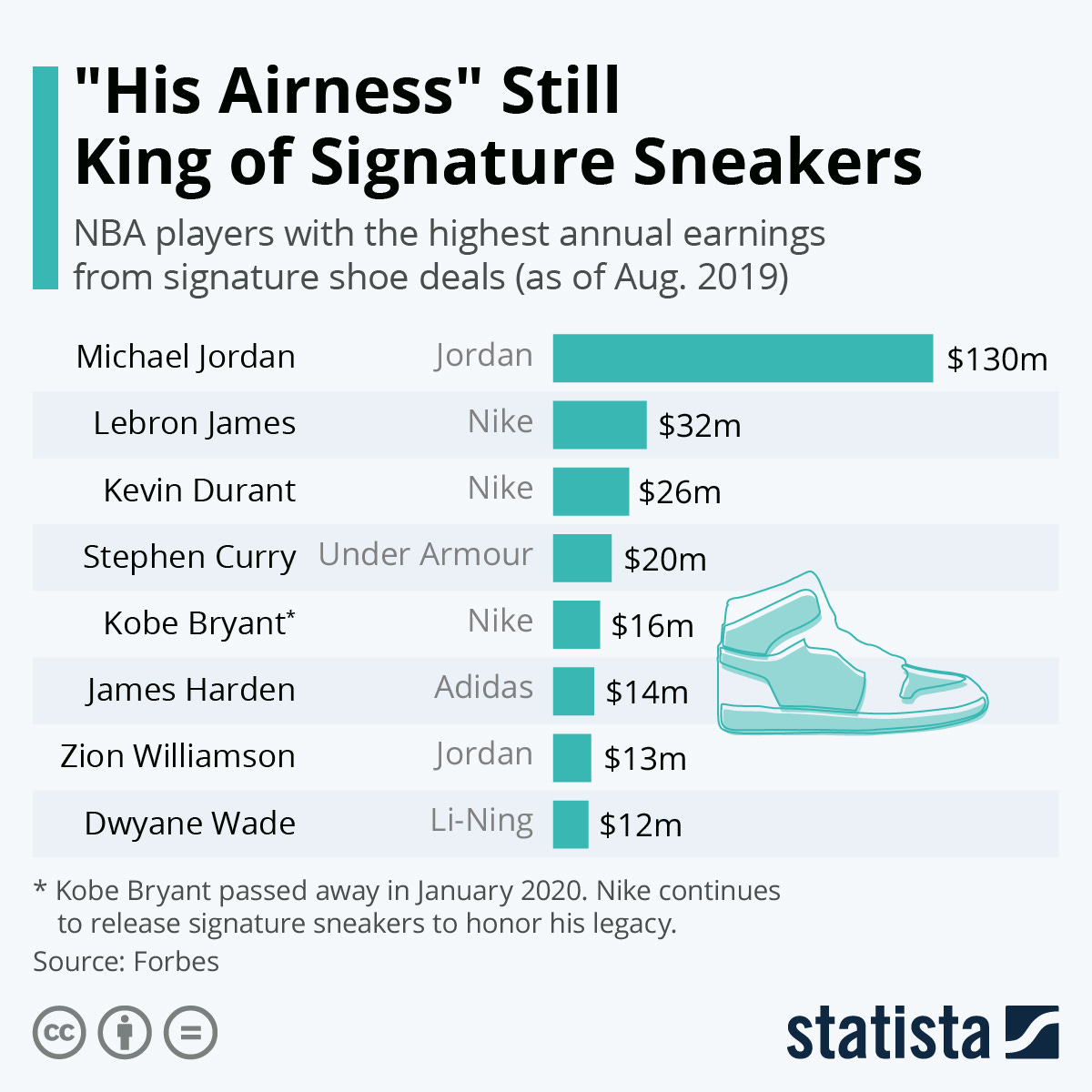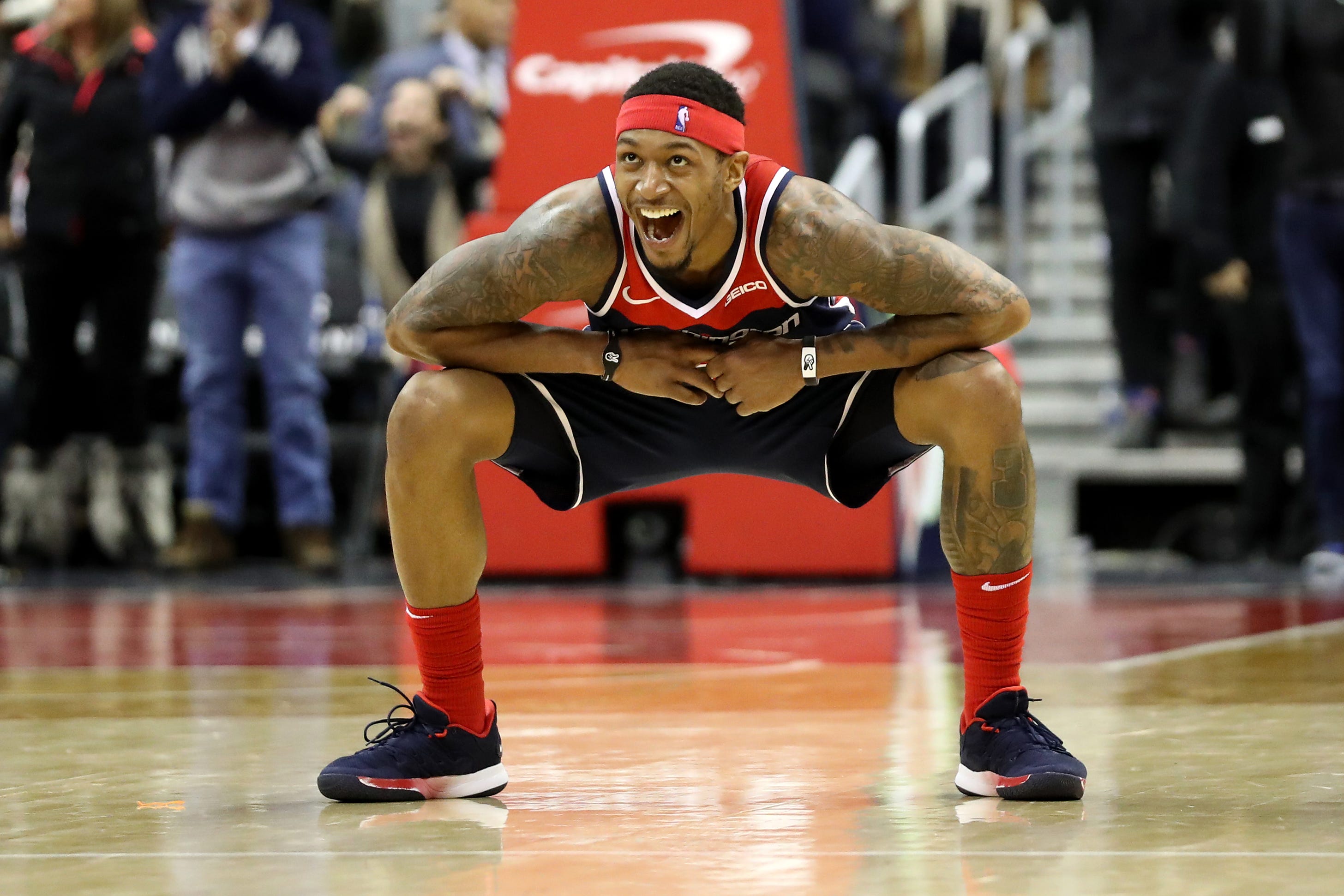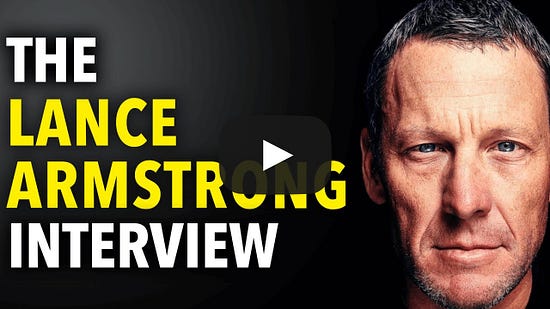How The NBA Shoe Business Actually Works
If you are not a subscriber of Huddle Up, join 72,000 other professional athletes, business executives & casual sports fans that receive it directly in their inbox each morning — it’s free. This Email Is Sponsored By…Sorare is one of the fastest-growing companies in sports. Backed by superstar athletes like Lionel Messi, Kylian Mbappé, Rudy Gobert, Aaron Judge, and Serena Williams, they have built blockchain technology that allows fans to collect officially licensed NFT-backed player cards. Sorare, which started in Europe with fantasy football games, recently launched exclusive licensing deals with the MLB/MLBPA and NBA/NBPA to create a custom fantasy game for each sport. The concept is simple: Sorare lets you buy, sell, trade, and earn digital trading cards of your favorite players. But rather than just looking at them as a digital collectible, you can use these trading cards to enter fantasy sports competitions for prizes/rewards. So go check them out and use my link below for a free limited card — it’s free to get started! Hey Friends, Kyrie Irving and Nike have officially cut ties. The sneaker and apparel giant initially suspended its partnership with Irving last month after he posted a link on social media to a movie containing antisemitic messaging, and the company confirmed this week that the relationship has ended. “Kyrie stepped over the line. It’s kind of that simple,” Nike co-founder Phil Knight told CNBC on Nov. 10. “He made some statements that we just can’t abide by, and that’s why we ended the relationship. I was fine with that.” Irving’s agent (and stepmother), Shetellia Riley Irving, has since called the decision mutual, and Kyrie appeared to express his feelings last night with these shoes.
Of course, there has been plenty of commentary around this decision — but it’s actually pretty simple. Kyrie Irving reportedly made about $11 million annually from Nike, and LeBron James was the only athlete selling more sneakers than he was at the company. So Nike will have to replace his sales, and Irving will be out of $11 million annually — until he signs another deal or launches his own brand. But rather than speculate on what Kyrie Irving might do next, I want to spend our time today breaking down how NBA shoe deals work. Generally speaking, there are three types of sneaker & apparel deals in the NBA:
Signature deals are the most lucrative and desired. This is where a company like Nike (LeBron James & Kevin Durant) or Adidas (Damian Lillard & James Harden) works with an NBA player to research, design, market, and produce their own exclusive shoe. These deals typically pay between $5 million to $15 million annually. They include a ~5% royalty on all sales, and the player is given unlimited merchandise and signature gear from the brand. The top players bring more than $25 million to $30 million annually (including royalties) from these deals, and roughly 20 NBA players (out of 450) have signature shoe deals, including brands like Nike, Adidas, Under Armour, Jordan Brand, New Balance, Anta, K8iros, and Peak. This chart is a few years old, but it gives good context on the NBA’s highest earners. One level down from a signature shoe deal is a cash deal. These agreements are reserved for good players that haven’t quite reached signature shoe status — think Bradley Beal and DeMar DeRozan — and they offer a cash payment but no royalty. Cash Shoe Deal Overview
While these athletes don’t actively design, market, and sell their own shoes, the most talented players (all-stars) are often given player-exclusive sneakers, which include their logo and custom colorways. These deals represent about 20% of the NBA. The third and final shoe deal in the NBA is a merchandise deal. These deals are typically given to bench players and reserves — and rather than being paid cash or royalties by the brand to wear their shoes, these athletes receive free merchandise throughout the year that can be worth $25,0000 or more, depending on the player. It’s basically a giant gift card in exchange for wearing the brand, and these deals represent the overwhelming majority of the NBA (~70 percent-plus). So while we may not know what Kyrie Irving will do next, I hope today’s email helped you understand the landscape better. If you’re interested in learning more, this article is a great resource. Have a great day. We’ll talk tomorrow. Your feedback helps me improve Huddle Up. How did you like today’s post? Loved | Great | Good | Meh | Bad Lance Armstrong: The rise, fall, and redemption of a cycling legendIf you are not a subscriber of Huddle Up, join 72,000 other professional athletes, business executives & casual sports fans that receive it directly in their inbox each morning — it’s free.
© 2022 |






